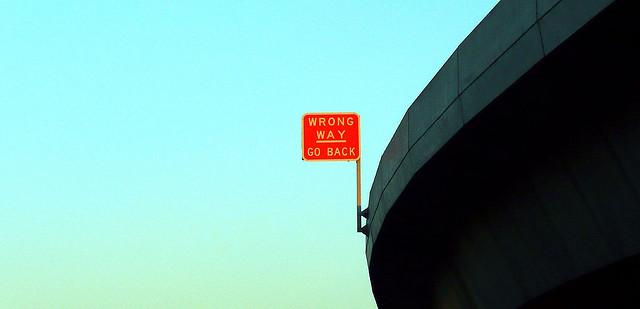A journey even more remarkable than the Chinese Ming Dynasty fleets’ discovery of Australia in the 1420s (at least according to Hu Jintao in 2003) is Hugh White’s journey of discovery on the China Choice road. Readers will be familiar with the bleak landscape of this voyage: confronted with a growing China determined to dominate its region, Australia must choose between its biggest market or its American ally. The choice is either to give China breathing space to manifest its destiny or ultimately go to war to stifle Beijing’s ambition. The prospect of war is so terrible that Australia’s only sensible option is not to cooperate with Japan or, most likely, any other partner in the region, because to engage with others is to encroach on Chinese breathing space. And that will take us to war.
The latest staging post on the China Choice road, is an article in the Fairfax broadsheets lamenting Tony Abbott’s commitment to closer defence and economic cooperation with Japan. This is a bad thing, Hugh argues, because Japan’s interest is to gather around it countries that will fight alongside it against China. In the White world of international security, where countries behave like the planets set on their immutable orbits, there’s no other outcome than that China and Japan will go to war over rocks in the sea while the US, Australia and any other country silly enough to limit China’s breathing space will be drawn into the conflict. So obvious is this desolate outcome, Hugh concludes, that either Tony Abbott just doesn’t understand the celestial movements of countries in White’s world, or:
A second possibility is that Mr Abbott is just pretending not to understand. He does understand what is going on in Asia, and has decided that, as regional strategic rivalries escalate, Australia’s best move is to spur them on—not just by strengthening our alliance with America, but by becoming Japan’s ally against China.
That’s such a remarkable quote you really should read it twice. There you have it, dear reader, an Australian conspiracy to take the world to war, to spur on China’s rivalry with flagrant, provocative, breathing-space-encroaching behaviour of strengthening our 70-year-old alliance with the US and cooperating, as we have since the 1950s, with Japan.
There are many twists and turns on the White road. For example, Hugh says that ‘Japan has a perfect right to do what is needed to protect its own security’—just not, it seems over the Senkakus or by cooperating with friends. That raises an obvious question: is the Asia-Pacific more stable by having a Japan closely allied to the US and with a network of friends, or with a Japan that’s isolated? History gives a precedent to consider.
To disprove the massive Australian conspiracy theory spurring the region to war, I offer the following modest insights. First, China–Australia relations remain good. Beijing isn’t asking us to choose. Australia continues to put a top priority on building closer relations with China. When Shinzo Abe was in Canberra, John Howard was in Beijing, meeting Xi Jinping. Xi pointed to the ‘extensive common interests’ between the two countries and looked to a future of close cooperation and a speedy conclusion to free trade negotiations. As I predicted in the Financial Review, there were a few negative comments in the Chinese media about Abe’s visit. But reading those as though they reflect Chinese government thinking makes no more sense than imagining Age editorials channel Tony Abbott’s opinions.
Second, no two countries are more invested in each other’s success than China and Japan. Like Australia, China is by far Japan’s largest market for imports and exports and Japanese investment in China is valued at over US$58 billion. A conflict between the two countries would sink them both. That’s not to say nationalism and miscalculation couldn’t trump economic self-interest, but it’s wrong to imply the current momentum is all in the direction of conflict. China’s primary interest is still to sustain growth. Peaceful relations with Japan are a key component of that strategy.
Third, with the exception of some Australian media outlets, Malcolm Fraser and the ANU redoubt, nowhere in the civilised world is the China Choice logic gaining traction. Countries in the Asia-Pacific stickily persist in cooperating with each other; in wanting the US to remain engaged; in building defence capabilities and otherwise refusing to sacrifice their own interests to give China more breathing space. At the same time the region vigorously trades with China even as they worry about Beijing’s intentions. The Asia-Pacific isn’t a blank canvass for China to redraw the map. Every country is looking for breathing space and most are forming the view that closer cooperation with friends and allies builds a stronger foundation for stability. That’s why Australia and Japan are cooperating more closely, and why both countries want closer relations with China.
In the Asia-Pacific the White Road is the road not taken, and just as well if the choice we face upon it is subordination or incineration. The smart thing to do is to follow a different path. U-turn, anyone?
Peter Jennings is executive director of ASPI. Image courtesy of Flickr user Koppenbadger.
